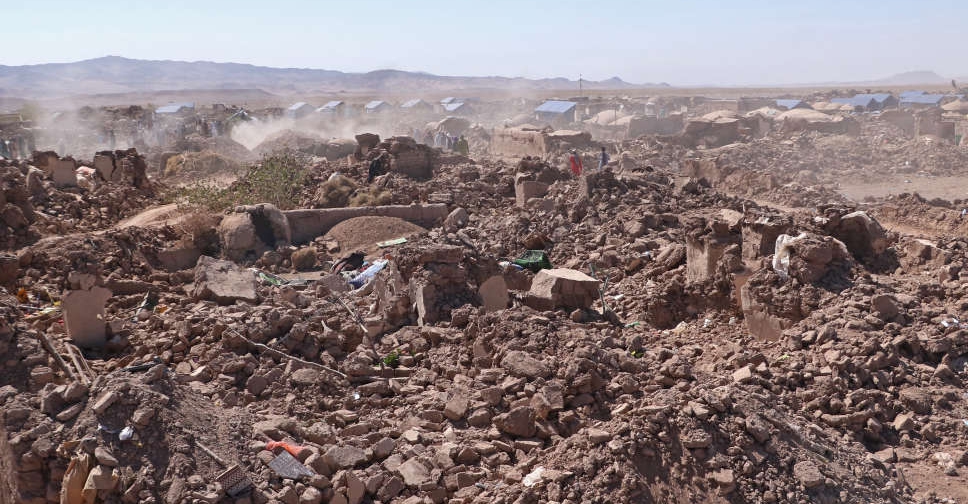
The World Food Programme has called the recent Afghanistan earthquakes a "disaster on top of a disaster," urging the international community to provide humanitarian aid to the war-torn nation.
Limited aid makes relief work difficult after earthquakes and aftershocks since Saturday rattled the nation. The tremors killed at least 2,400 people and injured more than 2,000, the Taliban-run government said, making the quakes among the world's deadliest so far this year after tremblors in Turkey and Syria killed an estimated 50,000 people.
"In Afghanistan, this is a disaster on top of a disaster, on top of a disaster, on top of a disaster," said Philippe Kropf, head of communications at the World Food Programme (WFP) Afghanistan, in an interview.
"We have 50 million people who do not know where their next meal will come from, and the World Food Program is only able to support 3 million people due to a massive funding shortfall," Kropf said in Herat, a northwestern province where the WFP has begun distributing rations.
"All the houses are completely flattened" and health centers have been turned into rubble, he added. "Livelihoods have been destroyed."
The WFP is initially providing each family of seven with 2100 kilocalories a day for a month, and may consider other forms of aid like cash in the coming weeks, Kropf said. To battle malnutrition, it has been distributing high energy biscuits and a special peanut butter.
"Breastfeeding women are amongst the most vulnerable," along with children and pregnant women, he said. "If we can help them prevent malnutrition, that's how we do it, because preventing malnutrition is much cheaper than treating malnutrition."
Women and children make up two-thirds of the injured in Afghanistan, said Dr. Alaa AbouZeid, head of the World Health Organisation's emergency response in the country, on Monday.
Afghanistan's healthcare system, reliant almost entirely on foreign aid, has faced crippling cuts in the two years since the Taliban took over and much international assistance, which had formed the backbone of the economy, was halted.
Afghans have endured decades of wars, since the fight to drive out Soviet Union military forces in 1979-1989 to US efforts to topple the Taliban government after the Sept 11, 2001 attacks, and the Taliban's victory in 2021.
The United Nations and humanitarian agencies reduced the budget for Afghanistan's 2023 aid plan to $3.2 billion from $4.6 billion earlier in the year, in wake of Taliban administration restrictions on female aid workers.
The WFP has already slashed rations and cash assistance from eight million Afghans this year, underscoring the severity of financial challenges aid agencies face in what the United Nations considers the world's worst humanitarian crisis.



 Israeli attacks on Gaza killed 60 people in 24 hours
Israeli attacks on Gaza killed 60 people in 24 hours
 Trump fires National Security Agency director
Trump fires National Security Agency director
 Israel steps up Syria strikes, says Turkey aims for 'protectorate'
Israel steps up Syria strikes, says Turkey aims for 'protectorate'
 US sending Israel 20,000 assault rifles that Biden delayed
US sending Israel 20,000 assault rifles that Biden delayed



